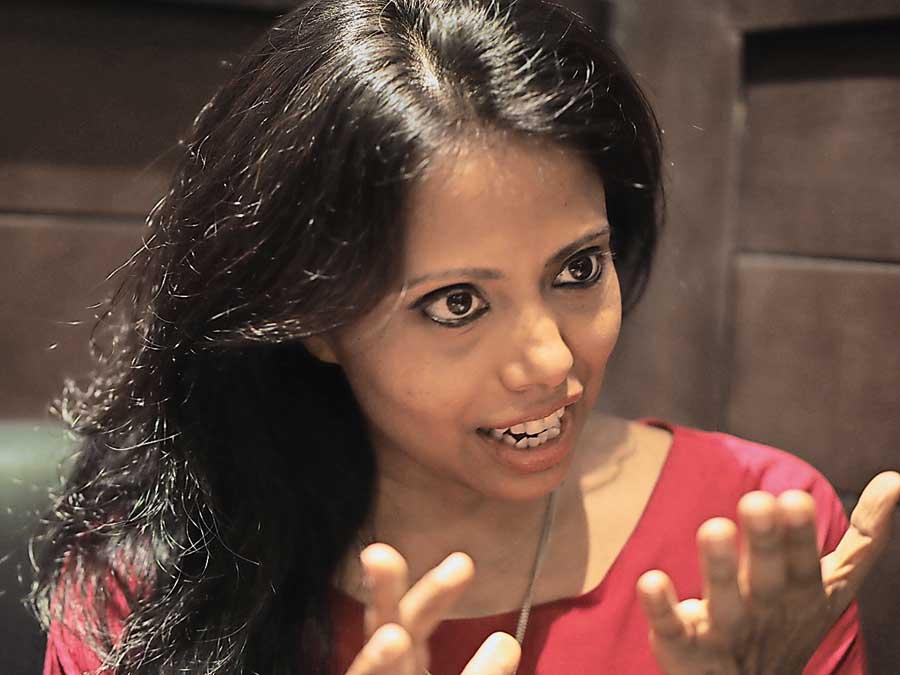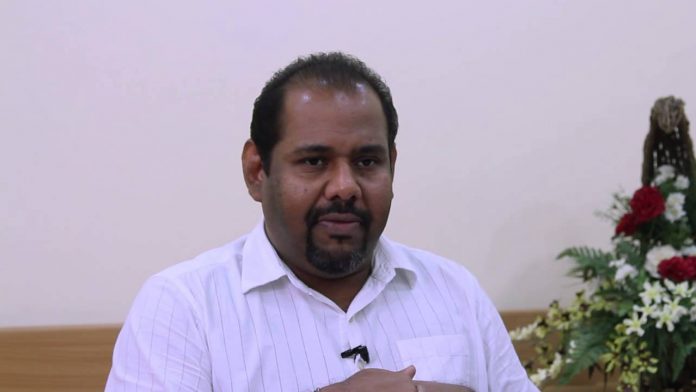
Photo of Ambika Satkunanathan
Speaking to the Daily Mirror, former Sri Lankan Human Rights Commissioner, Ambika Satkunanathan, admitted that Sri Lanka’s Human Rights Commission could no longer be considered independent.
This statement follows Rajapaksa’s establishment of an all Sinhalese board to the Human Rights Commission in November under provisions of the recently passed 20th Amendment.
Satkunanathan told the paper:
“Our track record, not just in relation to prison rights, but in relation to many human rights violations, is that we either have not inquired into violations or if we have inquired into them the reports have not been impartial and objective or the reports have not been released or if the reports have been released no action has been taken to hold those responsible accountable for the violations”.

Photo of Gajendrakumar Ponnambalam
This statement follows increasing calls by Tamil parliamentarians for Sri Lanka to be referred to the International Criminal Court. These statements come in advance of the 46th UN Human Rights Council session in Geneva this March.
TNPF leader Gajendrakumar Ponnambalam and TMTK leader C V Wigneswaran have both called for Sri Lanka to be referred to the ICC noting that the UN-sponsored human rights resolution, which has now been abandoned by the government, has already been rolled back twice. They further highlight a persistent failure for Sri Lanka to deal with issues of accountability.
The independence of the committee
Ambika Satkunanathan notes that under the Paris Principles, a key concern is the independence of appointments which has been jeopardised by the 20th Amendment.
“Legally it is no longer an independent institution because one of the key factors that determine independence is the process of appointment”, she notes.
Satkunanthan further highlights the risk of the institution being downgraded by the Alliance on National Human Rights Institutions (GANHRI). In 2007 the institution was downgraded from an A to a B, as following the passage of the 18th Amendment it was no longer seen as independent. In 2018 the institution was upgraded but currently runs a risk of being downgraded.
She further stated that this downgrade was due to “allegations that it had not inquired into complaints of custodial violence, enforced disappearances and that it did not engage actively with civil society”.
Attacks on the committee
Commenting on the pressure the institution faced between 2015 and 2019, she notes that whilst the government had not pressured them on to do something or avoid doing things; they routinely faced attacks from the public sphere.
![]()
Photo of Mahinda Rajapaksa
In the run-up to the 2019 parliamentary election, Mahinda Rajapaksa, the current Prime Minister, routinely attacked institutions such as the Office of Missing Persons which he claimed was an “inquisitorial body that can issue summons, examine witnesses, and collect evidence”.
This description of the OMP, as a powerful “inquisitorial body”, is at odds with the views of international legal experts such as Yasmin Sooka, Executive Director of the International Truth and Justice Project (ITJP) who described the OMP as having “no teeth”.
Sri Lanka’s prisons
Responding to questions on the Mahara prison riot, Satkunanathan notes that the interim report of the committee established by Sri Lanka’s Ministry of Justice is “objective, impartial and takes into account the systemic problems that caused the violence”. She added that this was a positive development but notes that “the violence was entirely avoidable and would not have taken place if the government had taken action at least after the incident at Anuradhapura prison in April 2020”.
Satkunanathan also highlighted on-going reports of torture in Sri Lankan prisons stating that it was “not just the UN and human rights organisations” reporting such issues but also that the country’s Supreme Court has judged that violence in Sri Lanka’s prisons could constitute torture.
Much of this violence has been inflicted on Tamil political prisoners who remain in detention despite the credible health-risk posed by the coronavirus pandemic. This month it was announced that at least 64 Tamil political prisoners had contracted the virus in the Welikada (Magazine) Prison in Colombo.




